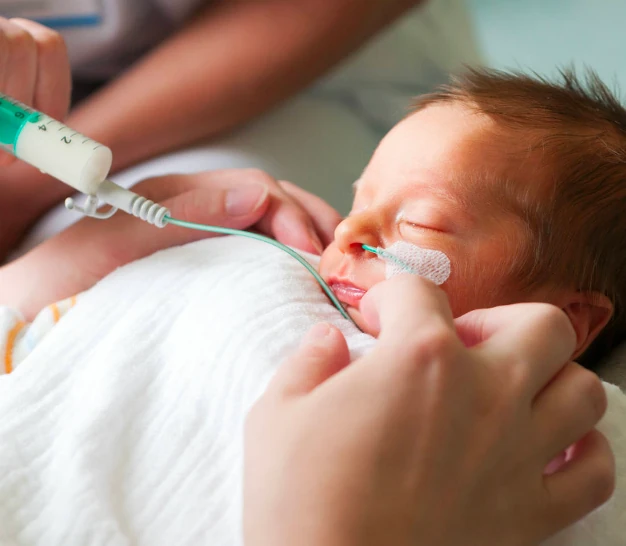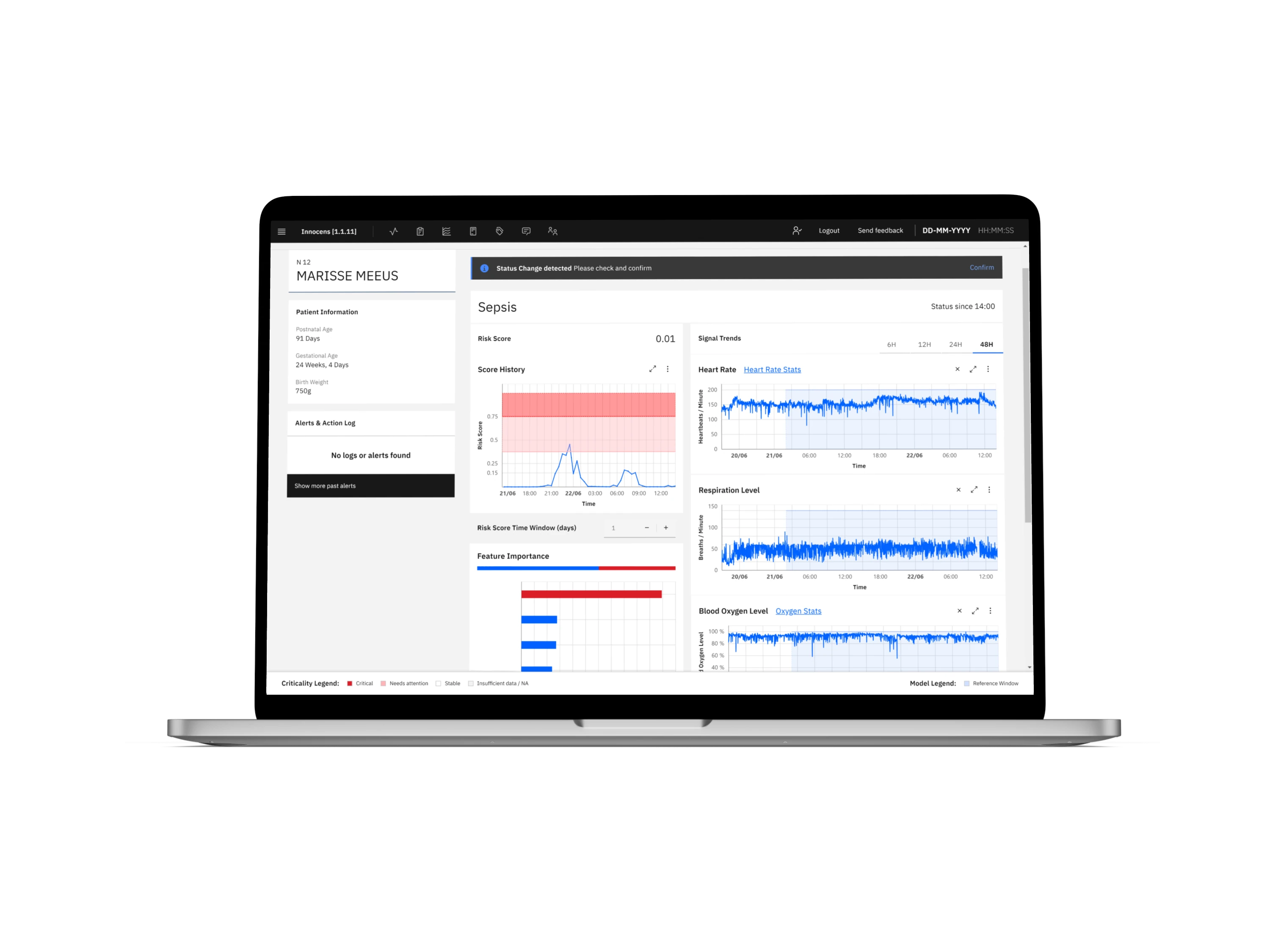Neonatal Sepsis.
A major challenge inside the neonatal intensive care unit.
Sepsis affects 2 million neonates globally each year.

"Neonatal infections result in over 550 000 neonatal deaths every year. Most of these deaths can be averted by preventive measures, early diagnosis, timely care-seeking, treatment with appropriate antibiotics, and follow up."
Source: WHO Article: Newborn infections
We developed a solution.
Our neonatal sepsis AI can detect sepsis 11 hours faster than the current best practice.
Introducing Intellicens.
Intellicens, our AI software platform, can alert clinicians when early signs of sepsis occur. Our system is designed such that our alerts are easy to interpret, ensuring that they are promptly acted upon. With Intellicens, we foster a culture that encourages all healthcare workers to voice concerns when suspicion of sepsis arises. An essential steps in improving detections and patient outcomes.

- Improves detection
- Early signs of Sepsis are very subtle and easily overlooked in busy hospital environments. Our alerts improve detection times by generating attention to patients that pose a higher risk at developing sepsis.
- Fully Explainable
- Every risk prediction is explained by the contribution of each signal characteristic (feature). This additional tool can be used to dismiss alarms that arose from expected symptoms.
- Facilitates communication
- Frequent staff changes, inconsistent documentation and communication gaps results in missed trends in a patient’s condition. We provide a communication layer on top of our risk predictions for easy collaboration.
- Improves situational awareness
- With fewer clinicians available, the workload per provider increases, making it challenging to monitor multiple patients effectively. We provide a quick high-level overview of all patients, improving visibility.
In practice.
In the current standard of care, nurses are the first line of defense against patient deterioration. In case of neonatal sepsis, nurses have gained a gut feeling over their years of experience. However, this gut feeling is not enough to start a sepsis workup.
By using the Intellicens: Neonatal Sepsis AI, clinicians are alerted sooner and they have access to an objective independent opinion on the current state of the patient. This, in combination with their expertise, speeds up the time to a sepsis workup and treatment.
Current standard of care.



After implementing Intellicens.



Read our latest paper.
Clinical Decision Support for Improved Neonatal Care: The Development of a Machine Learning Model for the Prediction of Late-Onset Sepsis and Necrotizing Enterocolitis
Marisse Meeus, Charlie Beirnaert, Ludo Mahieu, Kris Laukens, Pieter Meysman, Antonius Mulder, David Van Laere
Footnotes
- Schmatz et al. Surviving Sepsis in a referral neonatal intensive care unit: Association between time to antibiotic administration and in-hospital outcomes.
- Additional cost per sepsis episode can be smaller or significantely higher depending on the country and sepsis types [1,2,3,4,5][1] Donovan et al. The investment case for preventing NICU-associated infections.
- Meeus et al. Clinical Decision Support for Improved Neonatal Care: The Development of a Machine Learning Model for the Prediction of Late-Onset Sepsis and Necrotizing Enterocolitis